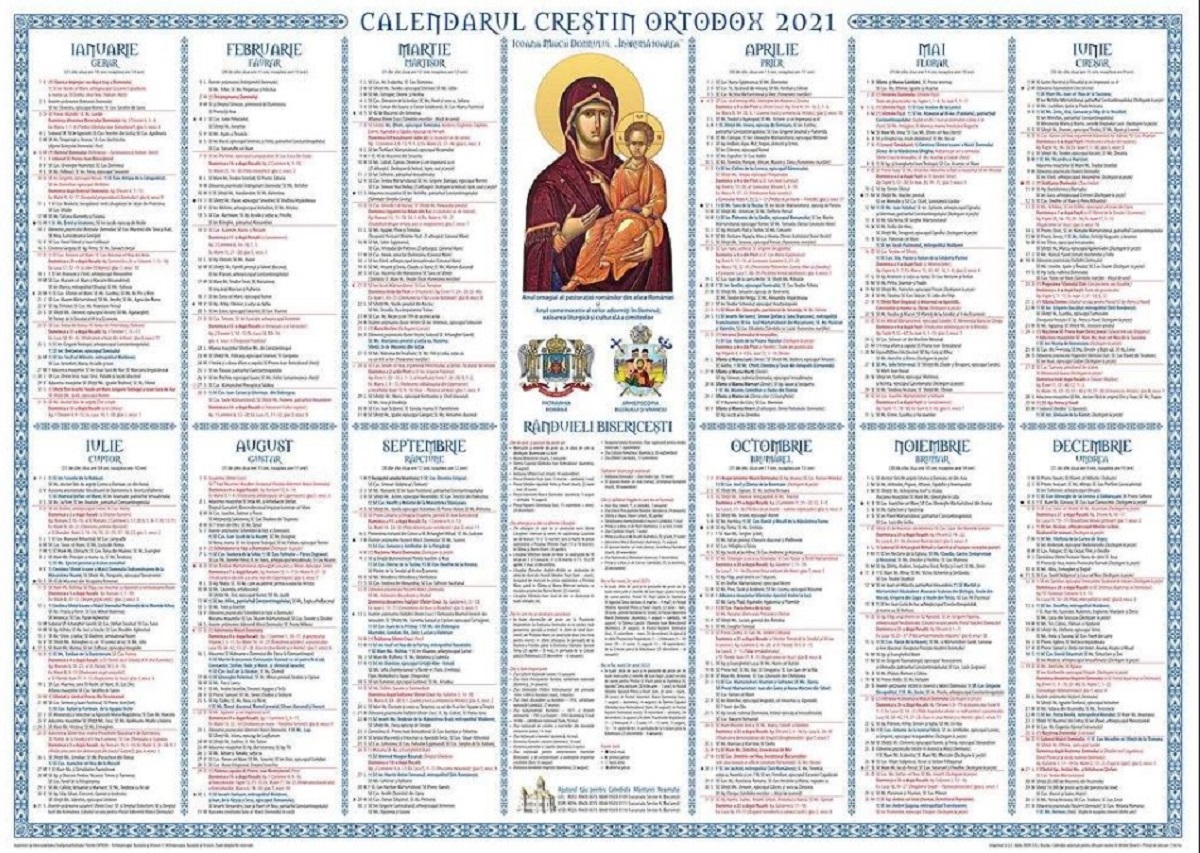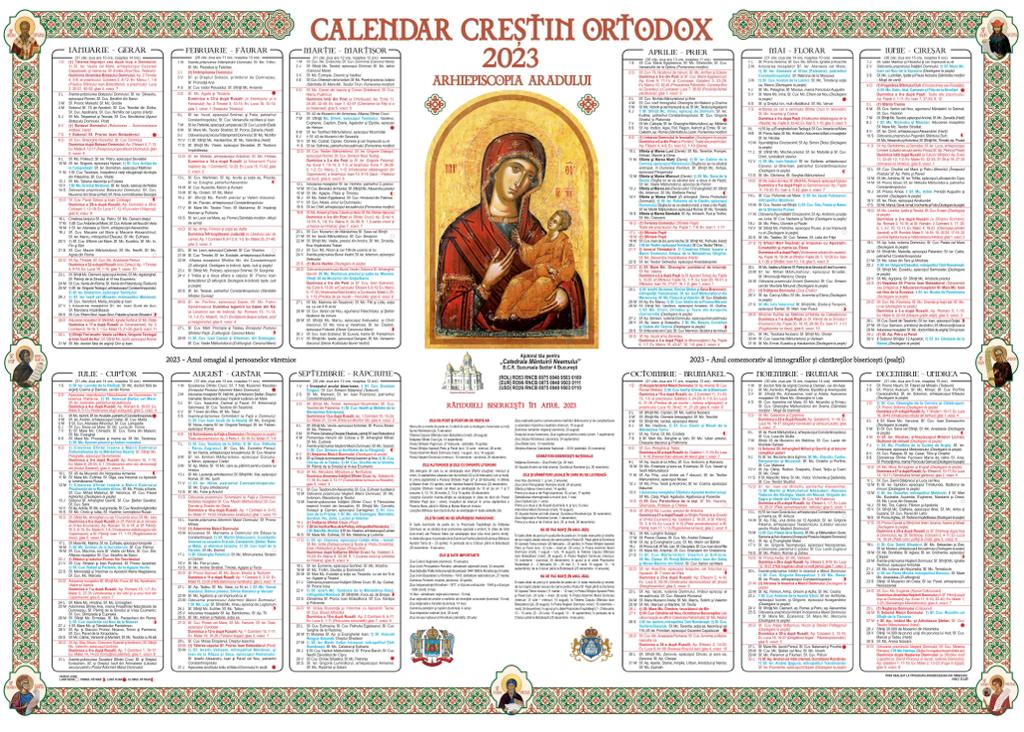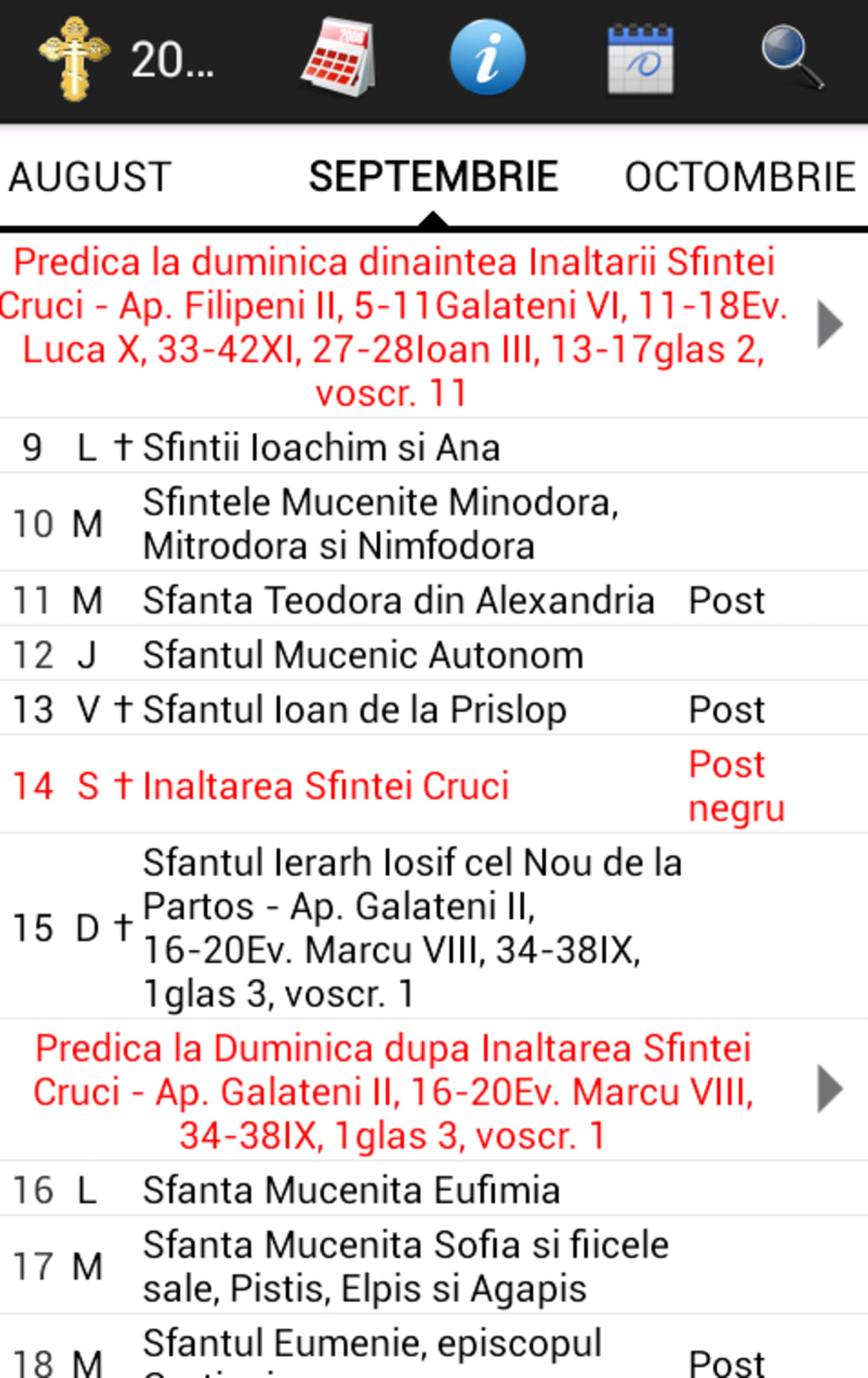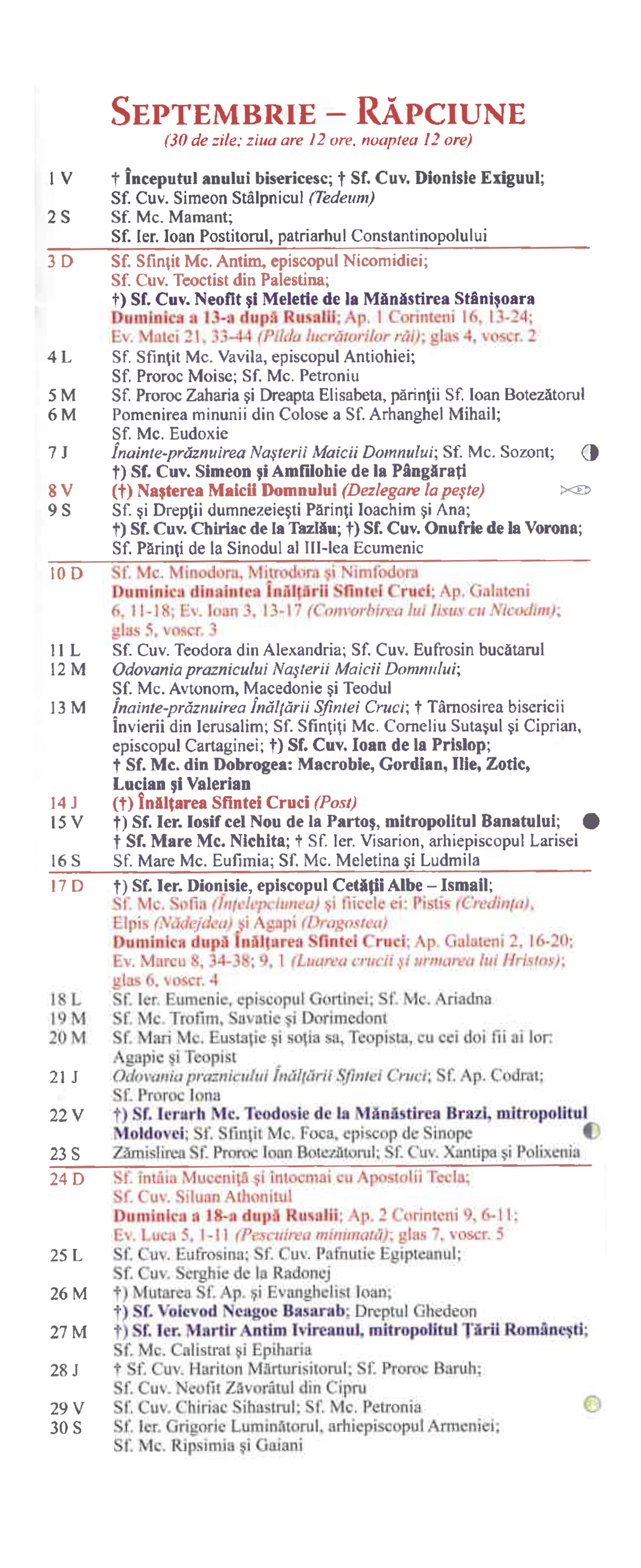
Introduction
calendar ortodox 2026 aprilie represents a significant subject within its field, encompassing a range of practices, traditions, or applications that shape daily life and broader cultural or professional landscapes. Understanding calendar ortodox 2026 aprilie provides clarity about its background, its present relevance, and the way it continues to influence various aspects of society. For millions of Orthodox Christians worldwide, this specific period is not merely a segment of time but a profound spiritual journey marked by deep reverence, strict observances, and the anticipation of the holiest feast.
Definition and Origin of calendar ortodox 2026 aprilie
The term "calendar ortodox 2026 aprilie" refers to the specific liturgical schedule and sequence of observances for the Orthodox Christian Church during the month of April in the year 2026. The Orthodox Church primarily follows the Julian Calendar for calculating its movable feasts, most notably Pascha (Easter), which often results in a different date for Easter compared to Western Christian traditions that use the Gregorian Calendar. In 2026, Orthodox Pascha falls on April 19th, a pivotal detail that profoundly shapes the entire month.
The origin of the Orthodox calendar system is rooted in the early Christian Church, with its Paschalion (the method for calculating Pascha) established at the First Ecumenical Council of Nicaea in 325 AD. This system ensures that Pascha always follows the Jewish Passover and occurs after the vernal equinox, on the first Sunday after the first full moon following the equinox. While many Orthodox Churches (such as the Romanian, Bulgarian, and Greek Churches) use the Revised Julian Calendar for fixed feasts (like Christmas on December 25th), they universally adhere to the traditional Julian Paschalion for Pascha and all related movable feasts, including Great Lent and Holy Week.
Therefore, the April 2026 Orthodox calendar is dominated by the culmination of Great Lent, the solemnity of Holy Week, and the glorious celebration of the Resurrection of Christ. Great Lent, a period of intense spiritual preparation through fasting, prayer, and almsgiving, would be nearing its end as April begins. Holy Week, the week leading up to Pascha, is a period of profound spiritual intensity, commemorating the final days of Christ’s earthly life, His Passion, Crucifixion, and Burial. The month culminates with the joyous Paschal services, marking the triumph over death and the promise of eternal life. Understanding this foundational structure is essential to grasping the significance of this specific calendar period.
Importance of calendar ortodox 2026 aprilie Today
The importance of the April 2026 Orthodox calendar extends far beyond a mere chronological listing of dates; it is a spiritual roadmap that guides the lives of Orthodox faithful. For individuals, this period offers a structured path for spiritual growth and introspection. The strict fasting regulations of Great Lent, which persist into April, encourage self-discipline and a focus on spiritual rather than material sustenance. Prayer intensifies, and believers are called to greater acts of charity and repentance. The liturgical services during Holy Week are particularly rich and emotionally charged, drawing participants into the narrative of Christ’s suffering and sacrifice, fostering a deep sense of empathy and devotion.
Collectively, this specific calendar period reinforces community bonds and cultural identity. Churches become centers of intense activity, with services often lasting for many hours, especially during Holy Week. Congregations gather, sharing in the spiritual journey, supporting one another in their ascetic struggles, and ultimately celebrating the Resurrection as one body. Family traditions are also deeply intertwined with the liturgical calendar; specific foods are prepared for Pascha, homes are cleaned, and special customs are observed, passing down centuries-old practices from one generation to the next. The rhythm of the Orthodox calendar, particularly during this sacred month, provides a sense of continuity with the past, connecting contemporary believers to the unbroken chain of Christian tradition. It serves as a powerful reminder of the core tenets of the faith and provides a framework for living a Christ-centered life in the modern world.
Benefits of calendar ortodox 2026 aprilie
The observance of the April 2026 Orthodox calendar offers numerous benefits, touching upon spiritual, communal, and personal dimensions of life. Spiritually, it provides a disciplined framework for drawing closer to God. The period of Great Lent, which concludes in April, is designed to purify the soul and body, leading to a more profound experience of Pascha. The intensified prayer, fasting, and repentance cultivate humility, patience, and self-control, fostering genuine spiritual growth. Believers are encouraged to examine their consciences, seek forgiveness, and renew their commitment to Christian virtues.
On a communal level, this specific calendar period strengthens the bonds within the Orthodox community. Shared fasting experiences, collective participation in long and meaningful services, and the communal celebration of Pascha create a powerful sense of unity and belonging. These shared practices reinforce a common identity and provide mutual support among the faithful. Families benefit from the structured traditions that accompany this time, offering opportunities for intergenerational learning and the preservation of cultural heritage. Children learn about their faith and traditions through active participation, whether through helping prepare special Paschal foods or attending church services.
Personally, adhering to the Orthodox liturgical schedule for April 2026 instills a sense of rhythm and purpose in daily life. In a world often characterized by chaos and distraction, the calendar offers a stable anchor, reminding individuals of higher spiritual priorities. The discipline required for fasting and prayer can translate into other areas of life, promoting greater focus, resilience, and mindfulness. Ultimately, the profound spiritual renewal experienced during Holy Week and the joy of Pascha provide hope, comfort, and a renewed sense of meaning, equipping individuals to face life’s challenges with faith and fortitude.
Applications of calendar ortodox 2026 aprilie
The practical applications of the April 2026 Orthodox calendar are extensive, influencing various aspects of daily life for Orthodox Christians. Primarily, it dictates dietary practices through fasting. As April 2026 encompasses the final weeks of Great Lent and Holy Week, strict fasting from meat, dairy, eggs, fish, wine, and oil is observed on most days. This requires careful meal planning and preparation, often involving specific Lenten recipes. For many, this period becomes an opportunity to explore plant-based diets and simplify their culinary habits.
Beyond diet, the calendar guides participation in liturgical life. Church attendance becomes more frequent and intense, particularly during Holy Week. Services such as the Liturgy of the Presanctified Gifts, the Bridegroom Matins, the Twelve Gospels service on Holy Friday, and the Paschal Vigil are central to the spiritual experience. Individuals adjust their personal schedules to accommodate these lengthy and significant services, often taking time off work or other commitments. Homes are also prepared for Pascha; this includes thorough cleaning, decorating with traditional symbols, and the preparation of specific Paschal foods like Pascha bread (cozonac or kulich) and dyed red eggs.
Furthermore, the calendar influences personal prayer rules and spiritual disciplines. Many increase their personal prayer time, engage in more frequent readings of spiritual texts, and make efforts to perform acts of charity. Confession and Holy Communion are also emphasized during this period as means of spiritual purification and renewal. For families, the calendar provides a framework for teaching children about their faith, involving them in preparations, and participating in communal celebrations. The culmination in the Paschal feast involves family gatherings, sharing blessed foods, and exchanging the Paschal greeting, "Christ is Risen!" This demonstrates how the liturgical schedule for April 2026 is not an abstract concept but a living guide for spiritual practice, communal life, and cultural expression.
Challenges and Future of calendar ortodox 2026 aprilie
Despite its profound importance, the observance of the April 2026 Orthodox calendar, and the Orthodox calendar in general, faces several challenges in the contemporary world. One significant challenge is the increasing pace of modern life and secularization. The demands of work, school, and social engagements often conflict with the lengthy church services and strict fasting rules, making it difficult for many, especially younger generations, to fully participate. Maintaining the discipline of fasting in a society that offers constant culinary temptations and often lacks understanding of such practices can be particularly arduous.
Another challenge relates to the diaspora and cultural assimilation. Orthodox communities living in predominantly non-Orthodox countries may find it difficult to preserve their traditions and transmit them effectively to their children, who are often immersed in a different cultural context. The linguistic barrier can also be a hurdle, as many liturgical texts are in Old Church Slavonic, Greek, or other traditional languages, requiring translation and explanation for new generations. The differing dates for Pascha between Orthodox and Western Christianity can also create practical difficulties, such as conflicting school holidays or work schedules, making it harder for families to observe the feasts fully.
Looking to the future, the Orthodox calendar is likely to adapt while striving to maintain its core integrity. The increasing use of digital technologies offers opportunities for greater accessibility, with online calendars, live-streamed services, and digital resources helping to inform and engage the faithful globally. Efforts to simplify liturgical language or provide clearer explanations may also become more prevalent. There is a growing emphasis on catechesis and education to ensure that the rich theological and spiritual meaning behind the calendar’s observances is understood, not just followed ritually. The future of this specific calendar period, and the Orthodox calendar as a whole, lies in balancing tradition with accessibility, ensuring its continued relevance and spiritual power for generations to come.
FAQs about calendar ortodox 2026 aprilie
Q1: What is calendar ortodox 2026 aprilie?
A1: This refers to the specific schedule of religious observances and feasts for the Orthodox Christian Church during April 2026. It is particularly significant because it includes the culmination of Great Lent, Holy Week, and the celebration of Pascha (Orthodox Easter), which falls on April 19th in 2026.
Q2: Why is calendar ortodox 2026 aprilie important?
A2: The April 2026 Orthodox calendar is crucial for Orthodox Christians as it guides their spiritual journey through fasting, intensified prayer, and participation in profound liturgical services that commemorate Christ’s Passion and Resurrection. It strengthens community bonds and preserves centuries-old traditions.
Q3: What are the main benefits of calendar ortodox 2026 aprilie?
A3: The primary benefits include spiritual growth through discipline and repentance, enhanced community cohesion through shared worship and traditions, and personal enrichment by providing a structured rhythm for spiritual life, fostering humility, and offering profound hope.
Q4: How can calendar ortodox 2026 aprilie be applied in daily life?
A4: Its application involves adhering to fasting rules, attending specific church services (especially during Holy Week), engaging in increased personal prayer, preparing traditional Paschal foods, and participating in family and community celebrations centered around the Resurrection.
Q5: What challenges are associated with calendar ortodox 2026 aprilie?
A5: Challenges include balancing modern life demands with strict observances, maintaining traditions in secular environments, overcoming language barriers in diaspora communities, and the practical difficulties arising from differing Pascha dates with Western Christianity.
Tips for calendar ortodox 2026 aprilie
Understand the fundamentals.
Grasp the theological significance of Great Lent, Holy Week, and Pascha. Familiarize oneself with the reasons behind fasting, the meaning of specific services, and the historical context of the Orthodox calendar to deepen the spiritual experience.
Focus on practical use.
Integrate the calendar’s directives into daily life by planning meals according to fasting rules, scheduling time for church attendance, and incorporating personal prayer and spiritual reading. This makes the observances a living practice rather than a mere obligation.
Stay updated on new trends or research.
While the core traditions are ancient, engage with contemporary Orthodox resources, such as online articles, podcasts, or talks by spiritual fathers, which can offer fresh perspectives on applying timeless principles in modern contexts.
Avoid common mistakes.
Do not view fasting as a diet or a legalistic burden; instead, approach it as a spiritual tool for purification. Avoid judging others’ fasting practices and focus on one’s own spiritual journey with humility and love.
Adopt a long-term approach.
Recognize that spiritual growth is a continuous process. The observances of April 2026 are part of an annual cycle that builds spiritual muscle over time. Embrace the journey with patience, perseverance, and a commitment to ongoing spiritual development.
Conclusion about calendar ortodox 2026 aprilie
The continuing importance of calendar ortodox 2026 aprilie cannot be overstated. It stands as a testament to enduring faith, a guide for spiritual discipline, and a cornerstone of cultural identity for Orthodox Christians worldwide. This specific period, marked by the solemnity of Great Lent and Holy Week culminating in the radiant joy of Pascha, offers profound opportunities for personal transformation and communal solidarity. It reinforces the core narratives of Christianity, drawing believers into a deeper relationship with the divine. Reinforce its cultural, professional, and personal significance. While challenges exist, its benefits outweigh them, ensuring that calendar ortodox 2026 aprilie remains a central element of progress and relevance into the future, continuing to shape lives, communities, and the spiritual landscape for generations to come.







Leave a Reply